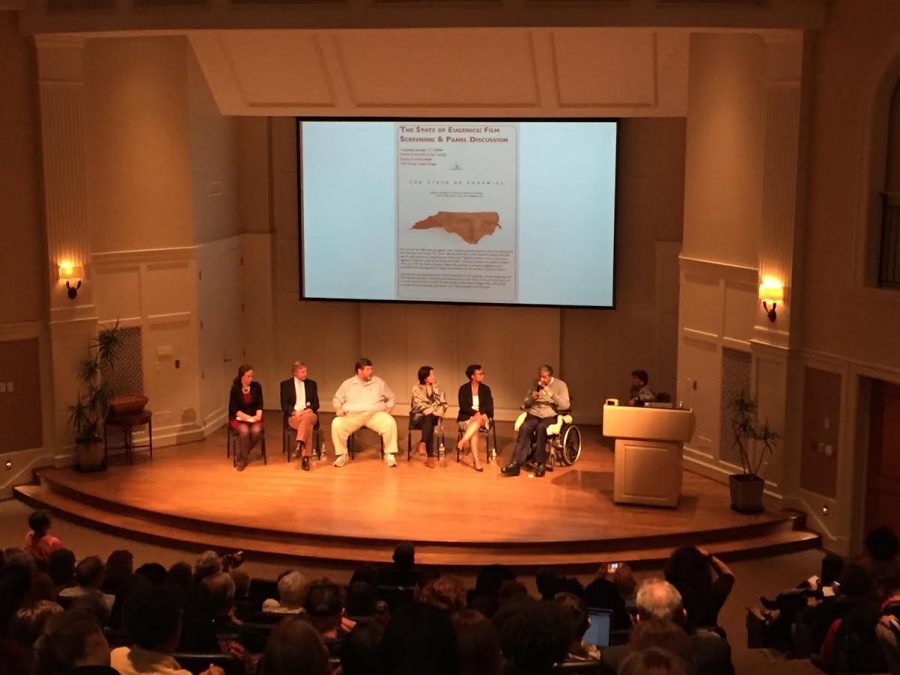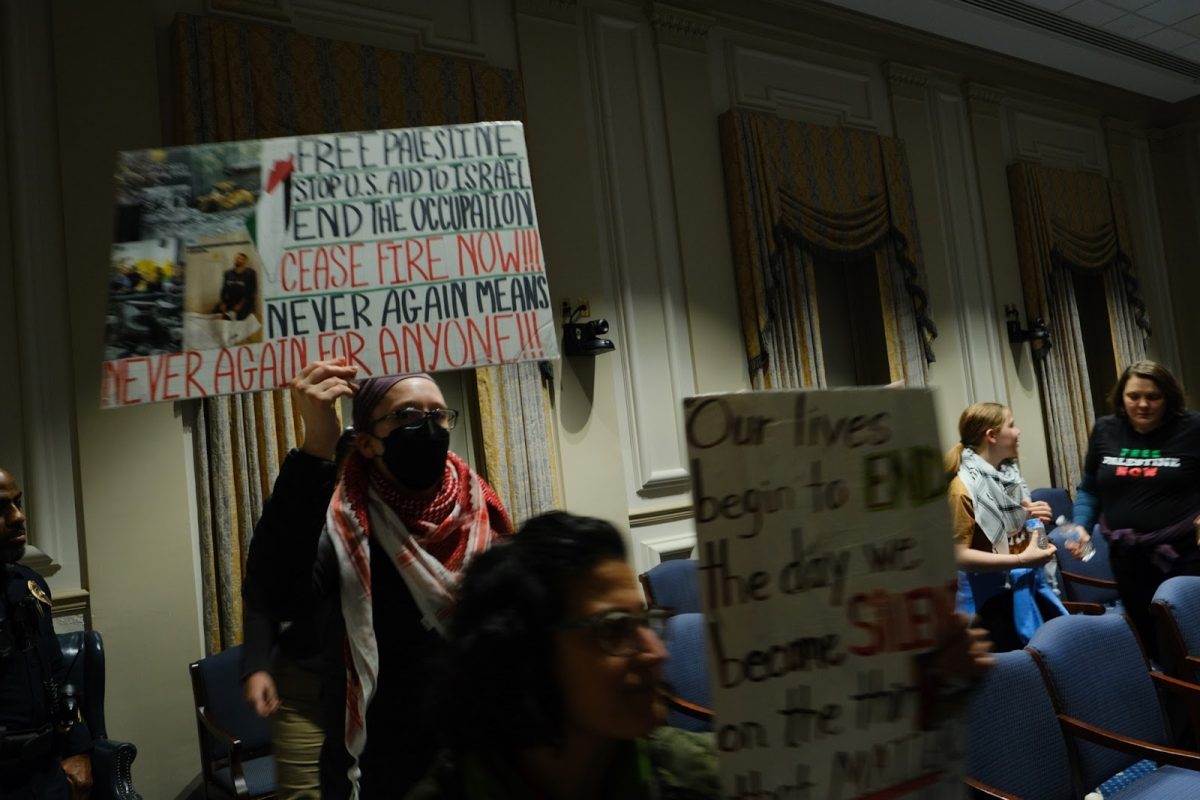Historically, North Carolina is often shamed for its involvement in the tobacco industry, mistreatment of Native Americans or the clear disparity between its cities and rural areas.
However, the prevalent practice of eugenics during the 20th century that haunts the state’s legacy often goes unnoticed.
On Thursday, Jan. 12 at 5 p.m., the university hosted a film screening of The State of Eugenics followed by a panel discussion that unpacked this story for the Wake Forest campus audience in the Kulynych Auditorium of the Porter Byrum Welcome Center.
As almost every seat was filled, eyes widened and gasps were frequently heard as the realities of this malpractice were uncovered for the attendees.
In a time period of just over 40 years, more than 7,600 men, women and children in North Carolina were sterilized under state law by force or coercion. Many of these citizens were poor, uneducated or disabled.
The federal support for this procedure was backed by the Supreme Court’s 1927 Buck vs. Bell decision that endorsed eugenics, or the sterilization of citizens with the aim of reducing poverty and eliminating the “unfit to reproduce,” as a valid practice.
However, even though eugenics is no longer a widely accepted practice, as stated in the film by Irene Clark, a retired biology professor from St. Augustine College, the records and files of the history of this practice had been swept under the rug for many years.
“They didn’t want us to see these records because they were supposed to be secret,” Clark said. “So what I’ve been doing is connecting dots. A whole lot of dots.”
After the opening scene featuring Clark, the movie twisted through the stories and journeys of many survivors, legislators and journalists who all collaborated to fight for compensation for these victims. Although the reason and manner in which these victims were sterilized varied, the same emotions plagued the survivors: confusion and anguish.
“I just don’t get why we would do something like that,” said Willis Lynch, a eugenics surgery survivor, during the film. “It just isn’t right.”
As the film highlighted these stories, it also focused on the legal process of compensating these victims who had been sterilized. Through focusing on the work of journalists like Tommy Tomlinson and John Railey and legislators such as Thom Tillis and Larry Womble, the film showcased how the victims in North Carolina eventually received entitlement to three payments of $20,000 as compensation.
However, the lack of compensation these victims received left students like junior Alex Fulling feeling dismayed.
“I think one of the most complex takeaways from this issue is whether or not the victims were sufficiently compensated,” Fulling said. “When I first heard in the movie that the reparation from the state was just three payments of $20,000 each, I was pretty shocked. Only $60,000 dollars over 10 or so years seems like a small number. But, simultaneously, how do you possibly put a price on something like this?”
Other students echoed Fulling’s concerns for the victims and said they believe this issue needs more attention.
“It’s a horrific event that happened in North Carolina that not a lot of people know about,” said senior Chandler Shapiro. “It needs to be more public.”
Following the screening of the film, a panel discussion moderated by Melissa Harris-Perry took place featuring the film’s director and producer Dawn Sinclair Shapiro, Womble, Tomlinson and Railey, and Laura Gerald, the former chair of the state task force on compensation and now president of the Kate B. Reynolds Charitable Trust.
While the panel focused on the issue of justice and debated the best way to compensate the victims, the discussion kept circling back to the fact that the practice of eugenics took place within close proximity to Wake Forest’s campus.
“There are doctors right here in this city that were a part of this,” Womble said. “There’s a hospital right here in this city that was a part of this. But if you don’t know the story, you won’t know what to say.”
As Womble and Tillis were two legislators who helped spearhead the fight for eugenics compensation, Womble said a priority for legislators should be to focus on the issues in their own backyard as he did.
“It makes me angry when I see politicians go around preaching for justice and equality in other places and countries abroad,” Womble said. “Because they have enough to do at home. Charity begins at home and then spreads abroad.”
Fulling found this aspect of the event to be a helpful reminder for the campus community.
“The event was great for Wake Forest students because I think we regularly lose touch with what’s going on outside of the campus gates,” Fulling said. “For example, the prominent state senator who led the fight to secure compensation for victims of forced sterilization is from Winston-Salem. The fact that no student in the room had any idea who he was before the event or that he lives right around the corner really speaks to just how little the average Wake Forest student knows about this town, its history and its famous figures.”
Although the panel agreed that justice was far from being served to these victims, legislative strides — although small — have been made.
The event ended with Susan Tillis, Senator Tillis’ wife, presenting Womble with a copy of the recent federal legislation, the Tillis-Carper Eugenics Compensation bill, that President Obama signed into law on Oct. 7.
How the future will continue to confront the stains from our past both socially and legally will be an ever-present issue.
















